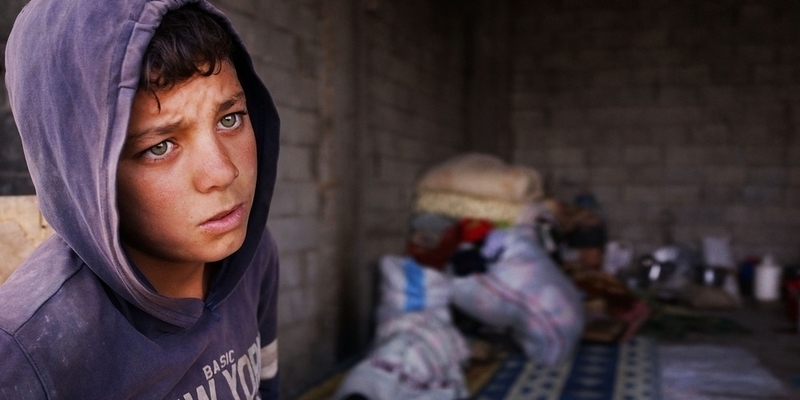The Lebanese Institute for Democracy and Human Rights (LIFE) has released its second legal status report on Syrian refugees in Lebanon, indicating the situation of refugees continues to "deteriorate year after year", claiming that living conditions for these individuals resembles those similar to that of a "huge prison".
The institute issued the report during a press conference held in Beirut by its chairman, Lebanese lawyer Nabil al-Halabi.
Halabi said that LIFE "had hoped its second report … would show significant progress in the situation of Syrian refugees in Lebanon (compared to the first report issued in early 2013), but the human rights situation in Lebanon is deteriorating dramatically and rapidly year after year".
The chairman explained that the LIFE’s research teams studied "the complaints of the victims or their families, the reports of its delegates, the records of the Lebanese courts and the security, and press reports", adding that the publication is divided into two parts: the violations, and the recommendations.
The report described Syrian refugees as living in "a large detention center in Lebanon, deprived from their basic rights through unfair and arbitrary government decisions, or through arbitrary – and often illegal – actions practiced by the Lebanese security and military forces against them".
The report highlighted several violations against Syrian refugees in Lebanon, pointing out that "racism and violence against refugees has increased since August 2014, when Syrian armed groups attacked the Lebanese army in the town of Arsal near the Syrian border, kidnapping a number of soldiers. Media campaigns inciting hatred towards refugees were another reason".
The report added that Syrian refugees in Lebanon are suffering from deprivation of litigation due to their legal situation, their fear of threats, and poor economic conditions. Syrian refugees are also deprived of the right to work, of medical care, and of freedom of movement in Lebanon".
The 212-page report, issued in Arabic and English, included images of physical abuse suffered by Syrian refugees in various Lebanese regions.
The report concluded with an invitation to powerful countries to "host Syrian refugees as Syria's neighboring countries did, and to work to enhance their protection. The UN High Commissioner for Refugees (UNHCR) and the international donors must increase aid to Syrian refugees through civil society organizations working in Lebanon, or through the Lebanese government, but the expenditure must be monitored".
The report called on the United Nations to "pressure the Lebanese government to stop all forms of violations against Syrian refugees, and to provide special programs for maternal and child care and to ensure the health and psychological safety of refugees".
Lebanon has received more than 1.1 million Syrians fleeing the bloody conflict in the neighboring Syria since mid-March 2011, according to United Nations statistics.
LIFE, founded in 2006, defines itself as an organization “committed to promote the human rights culture and democratic practices as measures for effective conflicts prevention and resolution”.
Translated and edited by The Syrian Observer


